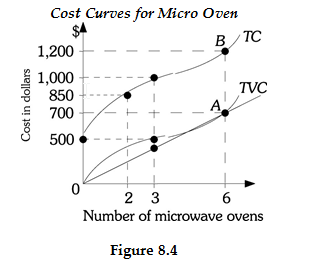Average total cost equals
A) the change in total cost divided by the change in output.
B) total fixed cost divided by output.
C) average fixed cost plus average variable cost.
D) total cost minus total variable cost.
E) average fixed cost plus average variable cost plus marginal cost.
C
You might also like to view...
Which of the following would be inconsistent with the notion of a competitive market process and the notion of perfect competition?
A) Price searching behavior B) Predatory pricing C) Advertising D) Licenses and other legal restrictions on entry E) Hostile takeovers
A Supreme Court ruling in March 1996 held that
A) state laws to prevent banks from selling insurance can be superseded by federal rulings from banking regulators that allow banks to sell insurance. B) state laws to prevent banks from selling insurance cannot be superseded by federal rulings from banking regulators that allow banks to sell insurance. C) state laws to prevent banks from selling insurance can be superseded only if Congress enacts legislation that allow banks to sell insurance. D) state laws to prevent banks from selling insurance cannot be superseded by federal legislation.
If a federal agency requested funds to build a dam on an Idaho river to irrigate nearby farmland used for growing potatoes, the most active support for the project probably would come from
a. potato farmers who own land that wouldn't be irrigated by the project. b. taxpayers who would pay for the project. c. consumers of potatoes who might benefit from an expansion in supply and slightly lower potato prices. d. potato farmers who own the land to be irrigated.

Refer to Figure 8.4. After Point A A) average total costs are increasing. B) marginal costs are decreasing. C) average variable costs are decreasing. D) average variable costs are increasing.